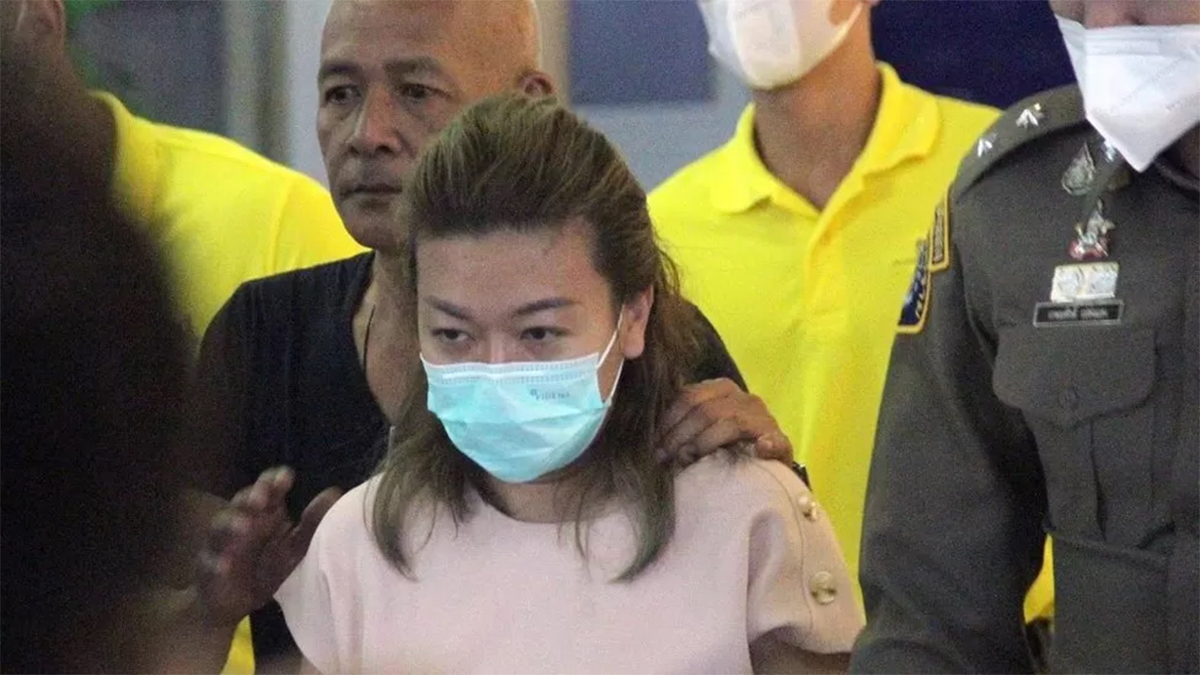Thailand’s Constitutional Court has suspended Prime Minister Paetongtarn Shinawatra, who has come under mounting pressure to resign over her leaked phone conversation with former Cambodian leader Hun Sen.
The clip, in which Paetongtarn called him “uncle” and criticised a Thai military commander, sparked public anger and a petition for her dismissal, which the court is now considering.
That could make Paetongtarn the third politician in the powerful Shinawatra clan – which has dominated Thai politics for the past two decades – to lose power before completing their term.
Her ruling coalition is already teetering with a slim majority after a key conservative ally abandoned it two weeks ago.
The Constitutional Court voted 7-2 to suspend her while they consider the case for her dismissal and she has 15 days to present her defence.
In the meantime the deputy PM will serve as the country’s acting leader. Paetongtarn, however, will remain in the cabinet as culture minister, a new appointment following a cabinet reshuffle that was endorsed hours before she was suspended.
On Tuesday, Paetongtarn apologised again, adding that the purpose of her phone call with Hun Sen was “more than 100%… for the country”.
The call was about the border dispute between the two countries – although it’s decades old, tensions have risen again since late May when a Cambodian soldier was killed.
The leaked audio especially angered conservative lawmakers who accused her of appeasing Hun Sen and undermining Thailand’s military.
But she defended herself on Tuesday, saying, “I had no intent to do it for my own interest. I only thought about how to avoid chaos, avoid fighting and to avoid loss of lives.
“If you listened to it carefully, you’d understand that I didn’t have ill intentions. This is what I’ll focus and spend time on explaining thoroughly.”
If she is eventually dismissed, Paetongtarn will be the second prime minister from the Pheu Thai party to be removed from premiership since August last year.
At that time, her predecessor Srettha Thavisin was dismissed, also by the constitutional court, for appointing to his cabinet a former lawyer who was once jailed.
Days later, Paetongtarn – whose father is Thailand’s deposed leader Thaksin Shinawatra – was sworn in as prime minister.
Tuesday’s decision once again underscores the constitutional court’s power to unmake governments, which critics say can be weaponised to target political opponents.
This court has dissolved 34 parties since 2006, including the reformist Move Forward, which won the most seats and votes in the 2023 election but was blocked from forming the government.
“This has become a pattern in Thai politics… a part of the Thai political culture, which is not what a true political process is supposed to be,” said Titipol Phakdeewanich, a political science lecturer at Ubon Ratchathani University.
“The suspension by court order shouldn’t have happened but most people could see its legitimacy because the leaked conversation really made people question if the PM was genuinely defending the interest of the country.”
Paetongtarn, 38, remains the country’s youngest leader and only the second woman to be PM after her aunt, Yingluck Shinawatra.
Already struggling to revive a weak economy, Paetongtarn saw her approval rating fall to 9.2% last weekend, down from 30.9% in March.
The court’s decision comes on the same day as Paetongtarn’s father, who was seen as the driving force behind her government, battles his own political troubles.
Thaksin is fighting charges of insulting the monarchy over an interview he gave to a South Korean newspaper nine years ago. His trial started on Tuesday.
The controversial political leader, who returned to Thailand in 2023 after 15 years in exile, is the most high-profile figure to face charges under the country’s notorious lese majeste law.
Thaksin’s return was part of a grand compromise between Pheu Thai and its former conservative foes.
They include the military, which deposed two Shinawatra governments in coups, and groups close to the monarchy.
(BBC)

 BIZ3 days ago
BIZ3 days ago
 News3 days ago
News3 days ago
 News3 days ago
News3 days ago
 News2 days ago
News2 days ago




















